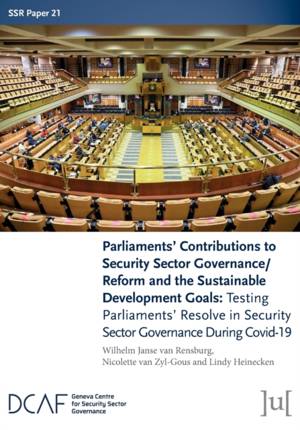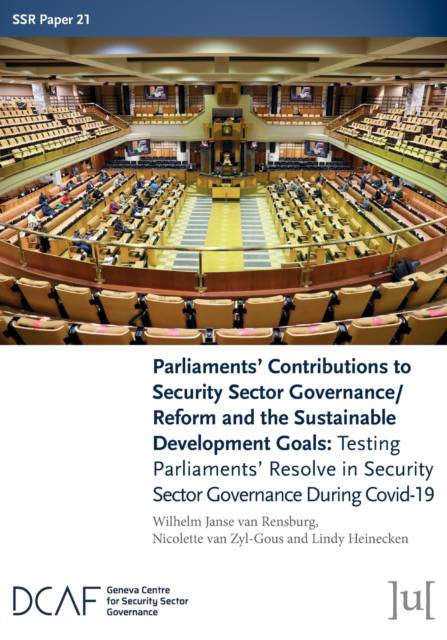
- Retrait gratuit dans votre magasin Club
- 7.000.000 titres dans notre catalogue
- Payer en toute sécurité
- Toujours un magasin près de chez vous
- Retrait gratuit dans votre magasin Club
- 7.000.000 titres dans notre catalogue
- Payer en toute sécurité
- Toujours un magasin près de chez vous
Parliaments' Contributions to Security Sector Governance/Reform and the Sustainable Development Goals
Testing Parliaments' Resolve in Security Sector Governance During Covid-19
Wilhelm Janse Van Rensburg, Nicolette Van Zyl-Gous, Lindy HeineckenDescription
The United Nation's Sustainable Development Goal (SDG) 16 calls for the establishment of peaceful, just and inclusive societies. The security sector has the potential to contribute to SDG16 through the fulfilment of its traditional and non-traditional security tasks. However, the security sector can also detract from SDG16 when it acts outside the confines of the law. Good governance of the sector is therefore a prerequisite to achieving SDG16, and parliaments can make an important contribution to accountability and good governance. Parliaments contribute to both transparency and accountability of the sector through their various functions and act as a counterweight to executive dominance, including in the executive's use of security forces. Yet, in times of crisis, states run a risk of executive dominance and executives are often quick to resort to the use of the security sector to address an array of challenges. This risk also emerged during the global Covid-19 pandemic where states used the security sector, notably the military and police, in various ways to respond to the pandemic. This study reviewed the utilisation of the security sector in South Africa, the Philippines and the UK during the first year of the Covid-19 outbreak, resulting in varied outcomes ranging from positive humanitarian contributions to misconduct and brutality that led to the death of citizens. The initial lockdowns in these countries constrained parliamentary activity, resulting in a lack of adequate parliamentary oversight of security sector utilisation when it was most needed. Parliaments did recover oversight of the sector to varied degrees, but often with limited depth of inquiry into the Covid-19 deployments. To prevent the security sector from detracting from SDG16, the study identified a need for a rapid parliamentary reaction capability to security sector utilisation, especially in cases of extraordinary deployments coupled with an elevated risk of executive dominance.
Spécifications
Parties prenantes
- Auteur(s) :
- Editeur:
Contenu
- Nombre de pages :
- 96
- Langue:
- Anglais
- Collection :
- Tome:
- n° 21
Caractéristiques
- EAN:
- 9781914481208
- Date de parution :
- 24-02-22
- Format:
- Livre broché
- Format numérique:
- Trade paperback (VS)
- Dimensions :
- 178 mm x 254 mm
- Poids :
- 240 g







